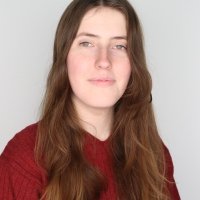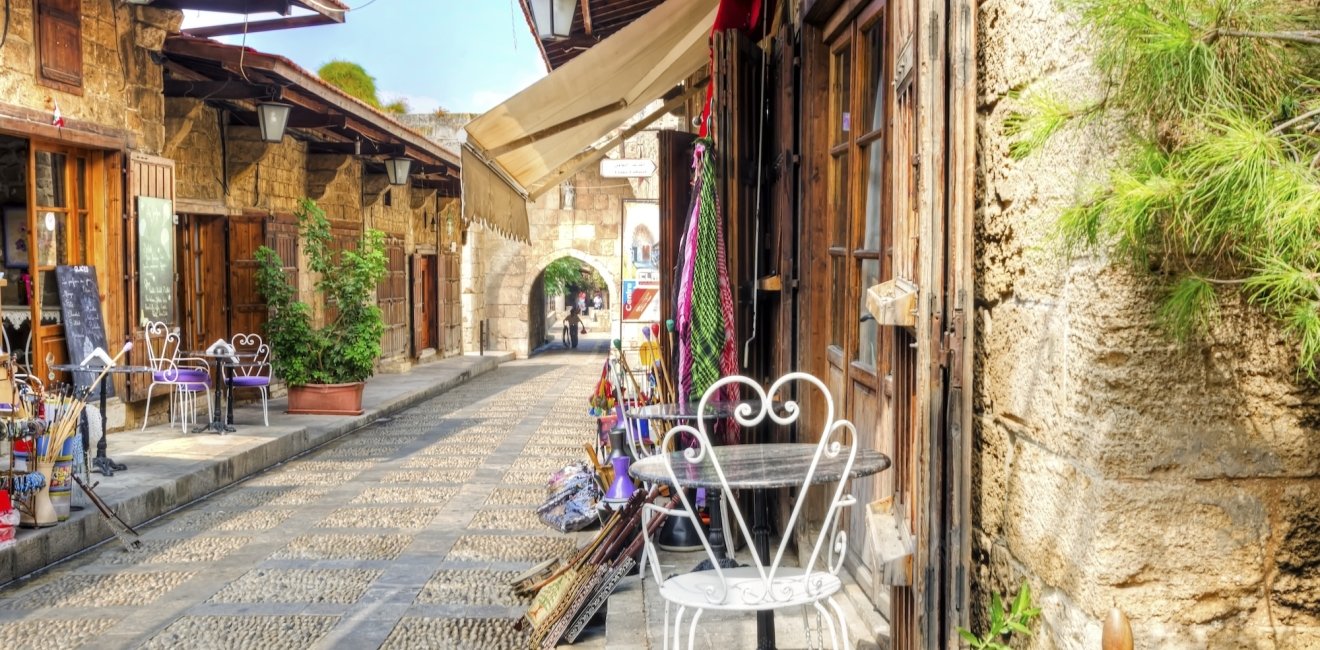
A blog of the Middle East Women's Initiative
“Many women residing in the southern regions, whose livelihoods are heavily reliant on agricultural crops such as olives and tobacco, find themselves compelled to abandon their fields due to safety concerns.”
Despite the all-consuming economic crisis impacting daily life in Lebanon, entrepreneurs of all ages are still determined to occupy the business scene.
For a tight-knit community of producers, the Souk El Tayeb farmers’ market is an eco-minded haven. It aims to provide sustainable and local products to the Beirut community. Doing so is about more than just helping the planet—it is integral to preserving heritage, forging connection, and ensuring environmental security.
Souk El Tayeb, founded in 2004 by social entrepreneur Kamal Mouzawak, started as a farmers’ market with the aim to protect and promote culinary tradition, support local communities, and encourage empowered livelihoods. Since then, it has expanded to include restaurants, community kitchens, and guest houses.
The farmers’ market continues to be a key instrument in their mission, each Saturday welcoming 65-70 vendors to Mar Mikhael, Beirut.
At Souk El Tayeb, vendors sell everything from honey to glassware; each product a soldier in the fight to keep Lebanese farming, culinary tradition, and craftsmanship alive and flourishing. In turn, Souk El Tayeb becomes a place where new culture can bloom.
Innovating tradition
“This is our heritage. This is our identity. This is part of who we are as a society,” Ziad Abichaker, sustainability expert, environment engineer, and CEO and founder of Cedar Environmental, a waste management company, affirms. The farmers’ market is “a way to fight the globalist approach to food production” and to create more “wholesome food.”
Yasmina Raffoul-Zahar runs a stall selling olive oil, herbs, vegetables, and more from her organic farm Bassatin Baanoub in a remote valley south of Beirut. Eleven years ago, she and her husband, Jean-Pierre Zahar, embarked on restoring its 2,000-year-old olive grove.
“It happened almost by accident,” she says, describing her journey to becoming a farmer. When they were living in the Czech Republic, her husband, a collector of old papers, came across a text about a patriarch of Jerusalem’s land. After tracking down the land to a parcel along the Awali River, they left their careers in advertising and architecture, respectively, to commit full-time to Bassatin Baanoub. They had “no business plan,” but “fell in love,” and began working the earth before even signing their rental documents.
Raffoul-Zahar explains that the olive grove likely dates back to the Roman era but had been abandoned since the outbreak of the civil war. Left unchecked, wild vegetation moved in and ate up the grove and surrounding terraces. Restoring the grove meant that some of those newcomers had to be removed. “You’re somehow harming biodiversity because you’re interfering,” Raffoul-Zahar said. However, she leaves some areas of the farm untouched to balance preserving biodiversity and Lebanese farming traditions.
Lebanon is home to 1.11% of the world’s plant species despite occupying less than 0.01% of the world’s land area, according to the Convention on Biodiversity. Of its approximately 2,600 terrestrial plant species, 96 are floral species listed as rare or threatened.
The Zahars recognize the importance of maintaining local flora. They have 180 species at Bassatin Baanoub and try to allow flowers to bloom where they sprout. It is mutually beneficial to them and the earth: scattered flowers facilitate pollinator health, and pollinators are essential to the success of their crops. Raffoul-Zahar keeps bees who feast on the nectar from these flowers and sells the honey they make at Souk El Tayeb.
It is platforms like Souk El Tayeb that make traditional agriculture possible for farmers like the Zahars. Without such a central, communal market many producers might not have been able to get started or continue their endeavors.
Empowering female entrepreneurs
MP Najat Saliba, a professor of chemistry and former director of the American University of Beirut’s Nature Conservation Center, who was elected to parliament in May 2022 as part of the anti-Hezbollah Taqaddom Party, writes in an email that “the private sector bears the burden of the corrupt [political] system.”
In Saliba’s eyes, women, such as Raffoul-Zahar, at the helm of businesses are critical. They play the “pivotal role” of “sustaining society in the absence of a state.” “In the context of Lebanon's economic and societal recovery,” she explains. “Women have historically played a crucial role. The repeated waves of male emigration, driven by challenges in securing a decent living since the civil war, have left women in the country to fend for themselves in raising and safeguarding their families…and fostering prosperity.”
From these experiences, she goes on, “there exists a wealth of knowledge.” Souk El Tayeb is a place to showcase this knowledge. Not only is it a vehicle of economic mobility and entrepreneurship but also a space to recognize female entrepreneurs by casting them as keepers of tradition and culture in the public sphere.
Challenges: Corruption, climate, and conflict
While Souk El Tayeb offers producers like the Zahars a platform, they still operate under a challenging politico-economic environment. Since 2019, Lebanon’s public sector has “entirely collapsed,” leaving many entrepreneurs to fend for themselves. At Bassatin Baanoub, “the water from the government, from the state, doesn’t come because they don’t have fuel to turn on the generators to send [it].” The Zahars now have to rely on the river at the bottom of the valley for their supply, which they must pay for generators to pump up to their terraced crops.
Additionally, the Zahars are subject to climate variability. Decreased yearly rainfall, which the Lebanese Ministry of the Environment predicts will only worsen, can lead to a bad crop. “We don’t buy [others’ olive oil] to sell under our brand,” Raffoul-Zahar says. So “if we don’t have a good olive harvest, we don’t have olive oil to sell that year.”
This past summer, the Zahars did not plant any vegetables or do floristry because the cost of growing exceeded the expected revenue. “You have to choose between watering the trees…or watering a tomato whose season is much shorter.”
To cope, they are turning their attention to exporting outside Lebanon, taking Souk El Tayeb’s mission of cultural preservation beyond its borders. Their products, such as oregano and za’atar mix, are now sold in Dubai, France, and the UK. Though getting all the paperwork sorted poses an obstacle for wider export, diversifying outside Lebanon is providing the Zahars with more stability, much needed given that economic conditions in Lebanon show little sign of abating soon.
Unfortunately, factors beyond the economic mayhem caused by government mismanagement are threatening the livelihoods of business owners. Israel’s clashes with Hezbollah, spillover from the war in Gaza, have led to dangerous conditions for residents of southern Lebanon.
MP Saliba writes that “many women residing in the southern regions, whose livelihoods are heavily reliant on agricultural crops such as olives and tobacco, find themselves compelled to abandon their fields due to safety concerns. Even if they successfully harvest their crops, the challenge lies in selling their products in light of the bomb shelling and the high risk of visiting the south.”
As of early January, Raffoul-Zahar and her husband have not yet been forced to relocate. However, they have been stocking up on supplies and keep a car handy at all times. “We see planes and missiles” and “hear some of the bombings,” Raffoul-Zahar says. “I must admit to having had a look at survivalist tips…”
Adaptability & persistence
Despite the many existing challenges Raffoul-Zahar faces, she is not giving up. Nor are other Souk El Tayeb producers facing similar challenges, whether that be conflict in the south, bad growing conditions, or economic freefall.
“There’s this feeling of supporting each other…There is something very strong from the customers…Since the crisis many have left [and] now the ones who are left have to calculate every cost,” but “the ones who still have the means make it a point to come.”
A testament to the close community of Souk El Tayeb, Abichaker and Raffoul-Zahar know each other. Abichaker sings Raffoul-Zahar’s praises, calling her a “true” practitioner of organic agriculture who makes “excellent olive oil.” Both agree that seeing vendors every week helps them feel bonded. Neither wants to leave Lebanon and each continues to innovate.
In some ways, the farmers’ market has been strengthened by the crisis, which has slowed imports and increased reliance on domestic agricultural production, something the World Bank considers “critical to mitigate the short-term risk related to food security” and “boost the local economy.”
Abichaker no longer “believe[s] in the supermarket model” that sells consumers “shitty products,” makes “all the money, and [leaves sellers] with peanuts.” Souk El Tayeb is an alternative model, one that prioritizes fair pricing, quality food, and earth-friendly production.
For him, the importance of Souk El Tayeb goes beyond its immediate form. “Souk is a good prototype,” he says. Now they are “ready to duplicate it in any city. I am practically on the management committee [of the farmers’ market], they listen to my advice. We need to take this model to other cities.” While he does not see more Souk El Tayeb farmers’ markets opening up until the crisis “retreats a bit,” he has hope for the future. “There are no perpetual crises.”
Once Lebanon regains some financial stability, more communities across the country can participate in the cultural exchange, heritage preservation, economic opportunity, and sustainable development that Souk El Tayeb facilitates and supports. Souk El Tayeb is an important blueprint: one that highlights the determination, commitment, ingenuity, and passion of producers and their clientele. Selling at Souk El Tayeb is not just about earning a living—it is about preserving Lebanon as a way to honor the past and for the sake of the future. Every Saturday, it proves the power of community.
The views expressed in this article are those of the author and do not express the official position of the Wilson Center.
Author


Middle East Program
The Wilson Center’s Middle East Program serves as a crucial resource for the policymaking community and beyond, providing analyses and research that helps inform US foreign policymaking, stimulates public debate, and expands knowledge about issues in the wider Middle East and North Africa (MENA) region. Read more


Middle East Women's Initiative
The Middle East Women's Initiative (MEWI) promotes the empowerment of women in the region through an open and inclusive dialogue with women leaders from the Middle East and continuous research. Read more

Explore More in Enheduanna
Browse Enheduanna
Women are the Catalysts for Change in Lebanon

How Education Can Empower Young Women in MENA


